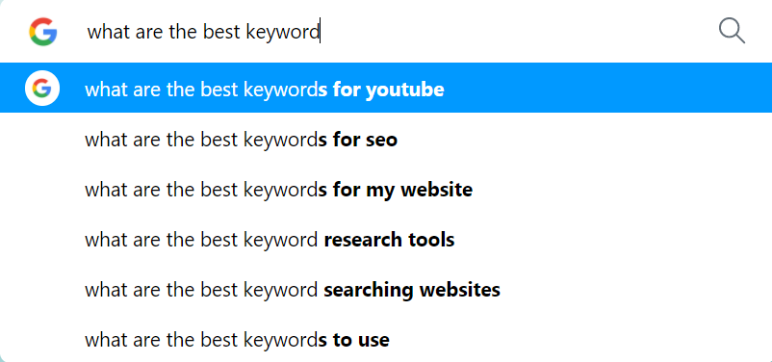When you’re trying to boost your business to the top spot in Google search results, fending off a field full of SEO competitors can feel like the Hunger Games.
How can you beat out the competition if your resources are limited and theirs aren’t? Think like Katniss Everdeen, of course.
Your audience wants content that’s “on fire”
“I want the audience to recognize you when you’re in the arena.” Cinna
Shouldn’t you start your planning with weapons and tools? Nope. Start with your audience.
Katniss needs sponsors—Panem residents who are watching the games–to send her gifts during the games so she can get a competitive edge or get out of tight spots. Her stylist, Cinna, knows that the way to get sponsors is to give the audience what they want—spectacle. So, Cinna lights up Katniss’ wardrobe. And it works.
Like Katniss, you need to give your audience what they’re looking for to get noticed, but your offering should be irresistible content rather than burning formalwear. Before you create your “hot” content, though, be sure about what your audience wants.
Think of it this way: If everyone in the world is searching for red dresses but you’re talking about blue dresses, it doesn’t matter how good your content is because it’s not what people are seeking out.
How can you find out what your audience wants? Get your hands on some keyword research tools.
You need some SEO resources
There’s a cornucopia of keyword research resources you can use to learn what your audience is searching for and how often they search for it. And you don’t need to fight your competitors for access to these SEO “supplies” the way Katniss had to fight other tributes for access to food, tools and tents.
Here are three we recommend:
- Google Keyword Planner. This is the place to start because it’s powerful and it’s free. And that provides search volume. If you have your Google Search Console account set up, that’s an easy way to see what keywords are sending traffic to your site.
- Ahrefs also has a suite of SEO tools, including Keywords Explorer, which identifies keyword ideas, gives you a sense of how competitive those keywords are, and projects search traffic based on them. Monthly plans start at $99/month after a $7, seven-day trial.
- Semrush offers a huge suite of search engine marketing tools including 6 keyword research tools to identify, analyze and compare keywords. Monthly subscriptions start at $120/month after a seven-day free trial.
What about just using Google autocomplete?

Google autocomplete and some other free keyword tools can help you come up with keyword ideas. But they don’t tell you how many people are running those searches. Does the keyword you’re thinking about creating a huge blog post for get 10 searches a month or 10,000? You’ll need to use Google Keyword Planner or another tool with search volumes to know for sure.
If it’s only 10, it might not make sense to create content around it—unless your competitors have left that keyword unguarded.
You need to know your competitors’ strengths and weak spots
Pre-competition exhibitions give Hunger Games tributes time to observe the competition—especially the Careers, kids who’ve had lots of resources and training to help them win. Katniss knows she has to overcome their advantages to survive.
Likewise, when you’re launching your business it can seem like Google’s first page of search results is already locked down by competitors. But you may be able to overtake them if you’re resourceful and persistent.
What’s ranking on Page 1 for the keywords you want to use? Visit those sites if they’re competitors and see what they’re doing. Pay attention to things like:
- How many words are on the page?
- What kind of content is on the page? Product photos, a video, just text?
- How many subheadings (H2s) there are on the page?
- How do they link that page to the rest of their website?
You can copy what works in terms of structure but use your own keywords and content to boost your chances of success. And if your planned keywords are turning up a first page of wiki results or other content for people who aren’t ready to buy, adjust your keywords and try again.
Start with the battles you can win
At the Cornucopia, Katniss doesn’t go rushing in for the big resources because she knows that’s a fight she can’t win. Instead, she grabs a pack from the edge of the field.
There’s a lesson here if you have a small website and you’re just starting out. You’re going to have a really difficult time ranking for keywords with 100,000 searches a month, because your website doesn’t have the same level of content, backlinks and domain authority that competitor sites do.
Your best bet is to build up to that by appearing on Page 1 for less-searched keywords. Start with more long form content, like long blog posts or how-to guides, based on keywords that have three to five words and no more than about 500 searches per month.
For example, instead of trying to get your brand-new site to land on Page 1 for “flaming dress,” you could try to rank on Page 1 for “flaming dress custom sewing patterns.” Grab that small-win resource backpack and build amazing content with it.
The rules can and will change
Just like in the Hunger Games, you don’t make the SEO rules and those rules can change at any time. Unlike the Hunger Games, Google usually gives advance notice when it’s planning big changes to the way it ranks sites.
Because there’s no SEO loudspeaker blasting updates to us all as if we’re tributes in the wild, you’ll need to keep up on your own. The easiest way is with the Moz Google Algorithm Update History, which summarizes confirmed and some unconfirmed updates and includes links to blog posts where you can learn more.
Getting your business on Page 1 of Google search results isn’t easy, but it’s possible. Know what your audience wants, use the right tools, know your competition, start small, and create content that sparks interest—and may the odds be ever in your favor.




![Yes, B2B Websites Can Use Personalization Too [Here’s How]](https://mdvirtue.com/wp-content/uploads/2022/02/Yes-B2B-Websites-Can-Use-Personalization-Too-Heres-How-400x250.jpeg)

0 Comments